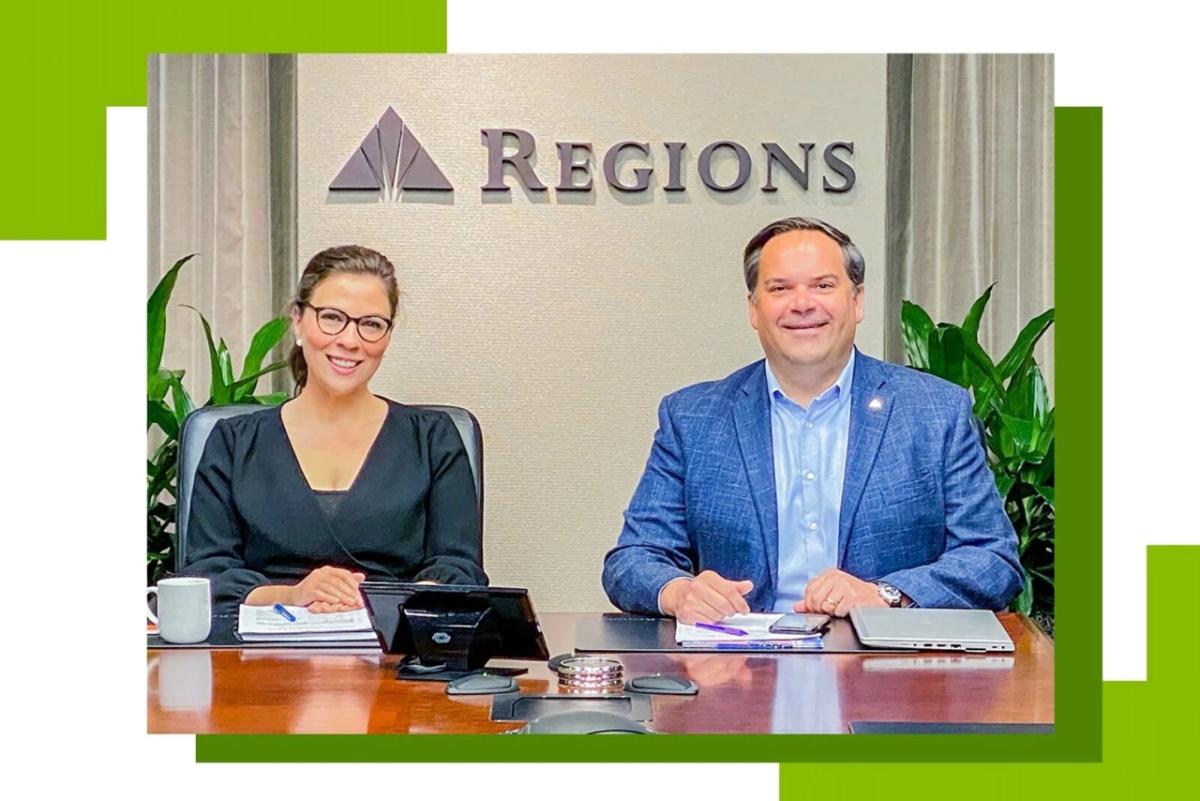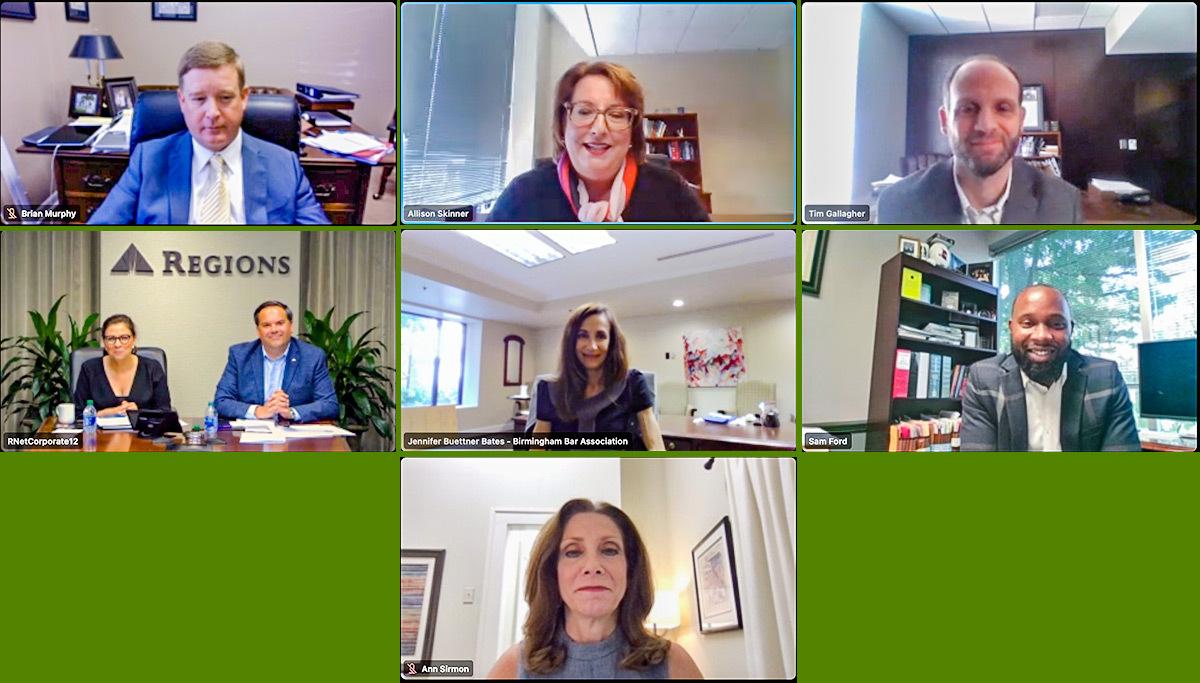'It's Important to Not Just Listen to All Perspectives in the Room - But to Really Hear Them'
Regions' Legal department hosted a webinar with local and state bar association leaders about how they’re contributing to diversity, equity and inclusion.
On Thursday, the Regions Legal department hosted the latest installment of their Birmingham Stands Together series, a program whose mission is to further diversity, equity and inclusion, or DEI, in the local legal community.
The series is the brainchild of Regions Chief Legal Officer and Corporate Secretary Tara Plimpton and is executed by the Legal department’s Culture and Equity team – with leadership from Assistant General Counsel Shayla Fletcher, who serves as chair of the Partnerships in the Profession committee.
Plimpton opened the virtual meeting with her “why” and “how:” Why this topic and why now? Because “DEI is a value proposition: it’s a tool for talent retention and engagement and it impacts reputation,” Tara said. “And it’s just good business.”
As for how, Plimpton said, “We can’t achieve these diversity, equity and inclusion goals and make these positive changes in the legal profession without community support and participation.”
With those inspiring opening remarks, Andrew Nix, Regions’ Chief Governance Officer and chair of the Culture and Equity team, and Turner Benoist, Legal Integration & Due Diligence manager and Assistant General Counsel, began the meeting by introducing the panel, made up of local and state bar association leaders.
Joining the discussion were Samuel Ford from the Alabama State Bar, Allison Skinner and Jennifer Buettner from the Birmingham Bar Association, Brian Murphy and Ann Sirmon from the Mobile County Bar Association and Tim Gallagher from the Montgomery County Bar Association.
Nix picked up where Tara left off, asking the panelists their “why.” Allison Skinner spoke about practicing law for 30 years and how experiences of exclusion have made DEI a strong priority for her.
Samuel Ford added, “When we don’t have diversity in our organizations, it stifles creativity and affects our bottom lines.”
For Tim Gallagher, hearing voices from all sides is critical. “The justice system works better if everyone is heard and experiences from the entire community are considered,” he said.
Turner then turned the conversation to intentionality, asking how the local and state bars are prioritizing and developing strategies around DEI. Panelists agreed that structure and planning are key. Diverse leaders and a strong plan with measurable goals will ensure positive outcomes.
The organizations have varied approaches on measurement. Some groups, such as the Alabama State Bar, are more data-driven and use demographic self-assessments to determine where they are with women and minority membership and participation – and where they need to be. Other groups have a more informal approach.
Collaboration – with law firms, law schools, out-of-state bar associations and other local bar associations – was a theme that everyone agreed on as a critical component of generating a more diverse and inclusive legal profession in our state.
Brian Murphy told a story about a law school graduate who was interviewing with a local firm. The candidate told Murphy that she looked around and thought, “I don’t see anyone here who looks like me.” Her account made him realize that more outreach was needed. Bar associations needed to develop relationships with not just law schools but undergraduate pre-law programs and even high school students and “communicate to them that they are welcome here.”
Mentorship programs were also discussed as a tremendous benefit, as well as the Magic City Bar Association’s scholarship program and others. After the recruitment phase, the leaders agreed about the importance of retention and promotion and how sponsorship and allyship play a role. Pro bono work was identified as a good way to engage young lawyers and expose them to different experiences and areas of practice.
“Pro bono opportunities are often a reflection of the clients we serve,” said Ford. “And that work further emphasizes the need for diversity, equity and inclusion in our profession.”
When asked about the best advice they’ve received or given about doing the right thing even when there are challenges, the panelists had some insightful responses.
“Go with your gut and what you believe in,” said Murphy. “If you believe in it, do it, say it.”
Similarly, Skinner said, “Follow your heart and pursue what you want to pursue.”
Ford had some particularly evocative advice: “It’s important to not just listen to all perspectives in the room – but to really hear them.”
The motivational advice led to some thoughtful responses and questions from audience members. Nix closed the meeting with final words from a viewer.
“After more than 30 years of managing diverse and not-so-diverse teams of lawyers and paralegals, I’ve learned that the value of diversity is real. It results in increased productivity and a happier team. Diversity adds real value!”



